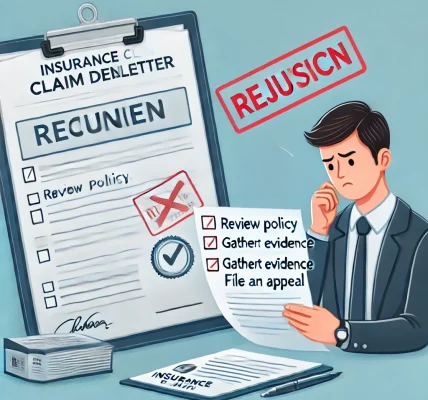Filing an insurance claim can feel like an overwhelming task, but with the right approach, you can navigate the process smoothly and efficiently. Whether you’re dealing with health, auto, home, or any other type of insurance, understanding how to file a claim correctly can save you time, stress, and even money. This guide will walk you through the process in a legally safe and straightforward manner.
Understanding the Basics of an Insurance Claim
An insurance claim is a formal request to your insurance company for compensation based on your policy’s coverage. The company assesses the claim, verifies the details, and then approves or denies it based on the terms and conditions of your policy.
Step 1: Review Your Insurance Policy
Before you begin filing a claim, it’s crucial to understand your policy. Take time to review the following:
- Coverage Details: Know what is covered and what is excluded.
- Deductibles & Limits: Be aware of the amount you need to pay before your insurance kicks in.
- Claim Filing Deadline: Ensure you submit your claim within the allowed timeframe.
- Required Documentation: Gather any necessary paperwork mentioned in your policy.
Step 2: Gather Necessary Documents and Evidence
Proper documentation is key to a successful claim. Depending on your insurance type, you may need:
- Medical Reports (for Health Insurance Claims)
- Police Reports (for Auto or Theft Claims)
- Photos & Videos (for Property Damage or Auto Claims)
- Receipts & Invoices (for Reimbursement Claims)
- Eyewitness Statements (if applicable)
Step 3: Notify Your Insurance Company
Promptly informing your insurer about the incident is essential. Most companies have a deadline for reporting claims, and failing to notify them in time can result in claim rejection. Here’s how you can report your claim:
- Online Portal: Many insurers provide an online claim submission process.
- Phone Call: Call the customer support line and get a claim reference number.
- Email or Mobile App: Some companies allow claim submissions via email or app.
Step 4: Fill Out the Claim Form Accurately
Once you’ve notified your insurer, they will provide a claim form. Ensure you:
- Fill in all details correctly to avoid delays.
- Provide factual and accurate information.
- Attach all necessary supporting documents.
- Keep a copy for your records.
Step 5: Work with the Insurance Adjuster
For certain claims, an insurance adjuster will assess the damage or loss. Be prepared to:
- Answer questions honestly and concisely.
- Provide additional documents if required.
- Allow the adjuster to inspect the damage (for property or auto claims).
Step 6: Follow Up on Your Claim
Insurance claims may take time to process. Stay proactive by:
- Regularly checking the claim status online or via customer service.
- Responding promptly to any requests for additional information.
- Keeping a record of all communication with the insurer.
Step 7: Understand the Settlement Offer
Once your claim is processed, your insurer will send a settlement offer. Carefully:
- Review the offer amount to ensure it aligns with your expectations.
- Clarify any doubts with your insurance representative.
- Negotiate if necessary, backed by supporting documents.
Step 8: Accepting or Appealing the Decision
If your claim is approved, review the settlement terms before signing. If your claim is denied:
- Request a written explanation from your insurer.
- Review your policy again to verify coverage.
- Consider filing an appeal with additional evidence.
- Seek professional guidance if needed.
Final Tips for a Smooth Insurance Claim Process
- Be Honest: Providing false information can lead to claim denial and legal consequences.
- Stay Organized: Maintain all records and correspondence related to your claim.
- Act Quickly: Delays in filing can lead to complications.
- Understand Your Rights: You can seek legal advice if you believe your claim is unfairly denied.




